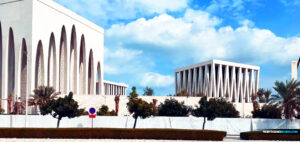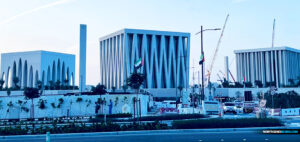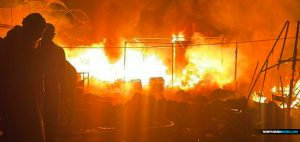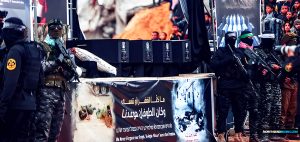Al-Qaeda
Obama’s Upcoming Illegal Syrian War Is Really About Iran And Israel
The dirty little not-so-secret behind President Obama’s much-lobbied-for, illegal and strategically incompetent war against Syria is that it’s not about Syria at all. It’s about Iran—and Israel. And it has been from the start.

The dirty little not-so-secret behind President Obama’s much-lobbied-for, illegal and strategically incompetent war against Syria is that it’s not about Syria at all. It’s about Iran—and Israel. And it has been from the start.
By “the start,” I mean 2011, when the Obama administration gradually became convinced that it could deal Iran a mortal blow by toppling President Bashar al-Assad of Syria, a secular, Baathist strongman who is, despite all, an ally of Iran’s. Since then, taking Iran down a peg has been the driving force behind Obama’s Syria policy.
Not coincidentally, the White House plans to scare members of Congress into supporting the ill-conceived war plan by waving the Iranian flag in their faces. Even liberal Democrats, some of whom are opposing or questioning war with Syria, blanch at the prospect of opposing Obama and the Israel lobby over Iran.
Item for consideration: a new column by the Syria analyst at the Washington Institute for Near East Policy, the chief think tank of the Israel lobby. Andrew Tabler headlines his piece: “Attacking Syria Is the Best Way to Deal with Iran.” In it, he says:
At first glance, the festering Syria crisis seems bad news for diplomatic efforts to keep Iran from developing nuclear capabilities. In actuality, however, achieving U.S. objectives in the Syria crisis is an opportunity to pressure Iran into making hard choices not only in Syria, but regarding its nuclear program as well. More U.S. involvement to achieve its objectives in Syria will inevitably run counter to Tehran’s interests, be it to punish the Assad regime for chemical weapons use or to show support for the Syrian opposition in changing Assad’s calculus and forcing him to “step aside” at the negotiating table or on the battlefield.
Many in U.S. policymaking circles have viewed containing swelling Iranian influence in Syria and preventing Iran from going nuclear as two distinct policy discussions, as the Obama Administration only has so much “bandwidth” to deal with Middle East threats. But the recent deepening of cooperation between Tehran, Hezbollah and the Assad regime, combined with their public acknowledgement of these activities, indicates that they themselves see these activities as furthering the efficacy of the “resistance axis.”
Like every alliance, its members will only make hard policy choices if the costs of its current policies far outweigh the benefits. U.S. strikes on the Assad regime, if properly calibrated as part of an overall plan to degrade the regime, would force Tehran to become more involved in Syria in order to rescue its stalwart ally. This would be costly for Iran financially, militarily and politically. Those costs would make the Iranian regime and its people reassess aspirations to go nuclear.
Needless to say, such a strategy is bound to be counterproductive, since—by slamming Syria, never mind toppling Assad—Washington is likely to undermine doves and bolster hawks in Tehran and undermine the chances for successful negotiations with Iran’s new president, Hassan Rouhani, who’ll be speaking at the UN General Assembly later this month.
In fact, both Russia and Iran have signaled recently, in the wake of Syria’s obvious deployment and use of sarin gas and other deadly weapons that they might be getting ready to join the rest of the world in condemning Syria’s chemical warfare, and that makes it far more likely that the much-postponed US-Russia “Geneva II” peace conference on Syria might work. The hawkish Washington Post today notes Rouhani’s new administration in Tehran is softening its tone on Syria, and it reports that the new Iranian foreign minister, Javad Zarif, has acknowledged the Syria has erred, saying: “We believe that the government in Syria has made grave mistakes that have, unfortunately, paved the way for the situation in the country to be abused.”
Meanwhile, Russia’s President Vladimir Putin, while issuing scathing denunciations of the coming U.S. attack on Syria, has dropped broad hints that he might be willing to join with other nations if and when the United Nations weapons team concludes that Assad used nerve gas, suggesting that Russia might not block a UN Security Council resolution against Syria. In hismuch-reported interview with the Associated Press, Putin insisted on waiting for the UN report:
“If there is evidence that chemical weapons have been used, and used specifically by the regular army, this evidence should be submitted to the U.N. Security Council. And it ought to be convincing. It shouldn’t be based on some rumors and information obtained by intelligence agencies through some kind of eavesdropping, some conversations and things like that.”
Then, according to the Washington Post, Putin declared that he might join a UN-sponsored coalition on Syria:
He said he “doesn’t exclude” backing the use of force against Syria at the United Nations if there is objective evidence proving that Assad’s regime used chemical weapons against its people. But he strongly warned Washington against launching military action without U.N. approval, saying it would represent an aggression. Russia can veto resolutions at the U.N. Security Council and has protected Syria from punitive actions there before.
But a change in tone on the part of Russia and Iran—the latter of whom the Obama administration still refuses to invite to Geneva II if and when it occurs—won’t mean a thing if the object of war with Syria is to send a message to Iran. As Jeffrey Goldberg, writing for Bloomberg, says, for Israel it’s all about Iran:
Prime Minister Benjamin Netanyahu of Israel would prefer that Obama enforce his red line on chemical weapons use, because he would like to see proof that Obama believes in the red lines he draws. From Netanyahu’s perspective, Israel isn’t unduly threatened by Assad. Syria constitutes a dangerous, but ultimately manageable, threat.
Netanyahu believes, of course, that Iran, Syria’s primary sponsor, poses an existential threat to his country, and so would like the Iranians to understand very clearly that Obama’s red lines are, in fact, very red. As Robert Satloff, the executive director of the Washington Institute for Near East Policy, told me last night, the formula is simple: “If the Iranians do not fear Obama, then the Israelis will lose confidence in Obama.”
In his round-robin television appearances on Sunday, Secretary of State John Kerry—now the administration’s über-hawk—repeatedly said that bombing Syria would send a message to Iran. As he told Fox News on Sunday:
“The fact is that if we act and if we act in concert, then Iran will know that this nation is capable of speaking with one voice on something like this, and that has serious, profound implications, I think, with respect to the potential of a confrontation over their nuclear program. That is one of the things that is at stake here.” source – The Nation

Al-Qaeda
Obama Administration ‘Loses’ Half Billion In Military Weaponry To al-Qaeda In Yemen
Pentagon officials cannot track the whereabouts of $500 million worth of military equipment the U.S. donated to Yemen since 2007 – raising alarms that the hardware may have ended up with al-Qaeda or Iranian-backed rebels.

Pentagon officials cannot track the whereabouts of $500 million worth of military equipment the U.S. donated to Yemen since 2007 – raising alarms that the hardware may have ended up with al-Qaeda or Iranian-backed rebels.
Ever wonder how al-Qaeda and ISIS always have such advanced weaponry and military capabilities? Wonder no more! Obama gives it to them, that’s how they do it. Did you think it was a trick question?
U.S. officials said Tuesday that increasing instability in Yemen has made it impossible to keep tabs on donated equipment that includes small arms, ammunition, patrol boats and night-vision goggles, according to The Washington Post.

U.S. firearms supplied to the Interior Ministry in Yemen, which has received $500 million in aid from the United States since 2007 under an array of Defense Department and State Department programs. (Government Accountability Office)
“We have to assume it’s completely compromised and gone,” a legislative aide on Capitol Hill, speaking on the condition of anonymity, told The Post.
In January, Yemen’s government was overtaken by Iranian-backed Shiite Houthi rebels. The rebels are increasingly taking over military bases.
Since then, the U.S. closed its embassy in Yemen and the Defense Department has stopped delivering equipment to the country, including a shipment of $125 million worth of military products scheduled to be delivered earlier this year.
This is the equipment no one can find, The Post reports:
- 1,250,000 rounds of ammunition
- 200 Glock 9 mm pistols
- 200 M-4 rifles
- 4 Huey II helicopters
- 2 Cessna 208 transport and surveillance aircraft
- 2 coastal patrol boats
- 1 CN-235 transport and surveillance aircraft
- 4 hand-launched Raven drones
- 160 Humvees
Al-Qaeda
Al-Qaeda Affiliate Threatens To Kill American Hostage Luke Somers
Luke Somers, a 33-year-old photojournalist, was abducted in 2013 in Sanaa, the capital of Yemen, according to media reports. In a YouTube video published Wednesday, he says he is certain his “life is in danger.”

An al-Qaeda affiliate has threatened to kill an American hostage in three days if the U.S. government does not respond to the group’s demands, according to terrorist monitoring group Site Intelligence Group.
Luke Somers, a 33-year-old photojournalist, was abducted in 2013 in Sanaa, the capital of Yemen, according to media reports. In a YouTube video published Wednesday, he says he is certain his “life is in danger.”

The video features an al-Qaeda official and a brief message from Somers – dressed in a purple shirt and with a shaved head – at the end. He notes that he was born in England but has American citizenship and lived in America for most of his life.
The al-Qaeda operative who speaks throughout much of the video and threatens that Somers will meet his “inevitable fate” if the group’s demands are not met is Nasser bin Ali al-Ansi of the Arabian Peninsula affiliate, Site Intelligence Group said. The video does not list what those demands are, but al-Ansi says Washington is “aware” of them.
“It’s now been well over a year since I’ve been kidnapped in Sanaa,” Somers said in the footage. “Basically, I’m looking for any help that can get me out of this situation. I’m certain that my life is in danger. So as I sit here now, I ask, if anything can be done, please let it be done. Thank you very much.”
Somers was kidnapped in September 2013 from a street in Sanaa, where he had worked as a photojournalist for the Yemen Times, the Associated Press said.
Read the rest of this story on USA Today…
Al-Qaeda
Islamic Terrorists Foster Jihad With Over 90 Tweets Per Minute On Twitter
Abdulmunim Al-Mushawah revealed that about 129,600 tweets were posted by accounts affiliated to terror groups in October 2014. As a result, at least 500 accounts believed to have been run by terrorists were deactivated.

Islamic terror groups post at least 90 tweets every minute, a new report has found
The data was revealed in a survey conducted by the Saudi-based Sakina, an independent, non-governmental organisation created to engage in dialogue online as a way to combat internet radicalization.

Results showed that terror groups such as the Syrian Islamic Liberation Front, Al-Nusra Front and Islamic State (ISIS) use social media to recruit new members and to spread their propaganda.
Abdulmunim Al-Mushawah, head of the organisation, revealed that about 129,600 tweets were posted by accounts affiliated to terror groups in October 2014. As a result, at least 500 accounts believed to have been run by terrorists were deactivated.
Al-Mushawah urged for a censorship committee to be put in place in order to monitor tweets that could be written to promote insurgents’ propaganda. “The nature of the extremist can be understood by analysing his posts, identifying his social circle and understanding his internal motives and history,” he was quoted by the Saudi Gazzette as saying.
“After understanding and recognising the type of extremist the person is, we can then follow the appropriate method of dialogue knowing that it is a lengthy and complicated process at times.
“The responsibility of protecting the general public from terrorist activities does not only lie with the official directorates. It is also the responsibility of the media, mosques and educational institutes,” he continued.
“Public awareness and guidance are the campaign’s top priorities because it is important to teach people how to face one problem without creating another.”
-

 George Soros8 years ago
George Soros8 years agoProof Of George Soros Nazi Past Finally Comes To Light With Discovery Of Forgotten Interview
-

 Election 20168 years ago
Election 20168 years agoDEAD POOL DIVA: Huma Abedin Kept Those Hillary Emails That The FBI Found In A Folder Marked ‘Life Insurance’
-
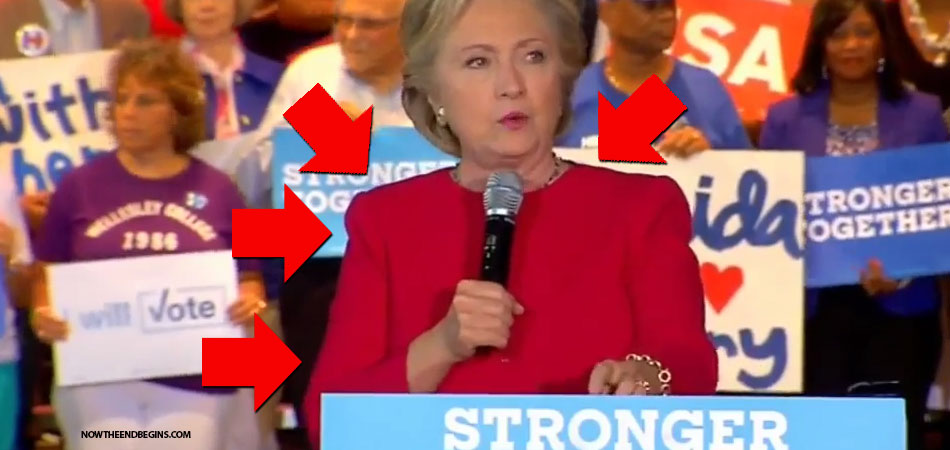
 Election 20168 years ago
Election 20168 years agoCrooked Hillary Campaign Used A Green Screen At Today’s Low Turnout Rally In Coconut Creek FL
-
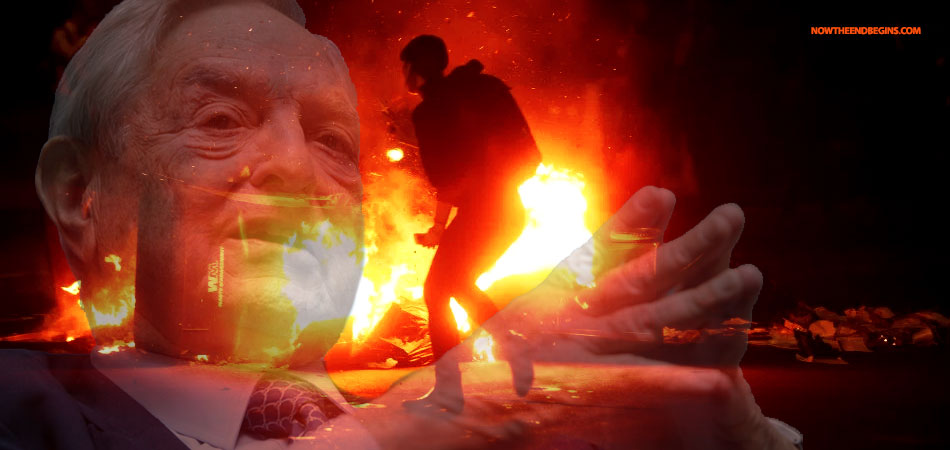
 George Soros8 years ago
George Soros8 years agoSORE LOSER: George Soros Declares War On America As Violent MoveOn.Org Protests Fill The Streets
-

 Donald Trump8 years ago
Donald Trump8 years agoDonald Trump Will Be 70 Years, 7 Months And 7 Days Old On First Full Day In Office As President
-

 Headline News8 years ago
Headline News8 years agoIf Hillary Is Not Guilty, Then Why Are Her Supporters Asking Obama To Pardon Her? Hmm…
-

 Election 20168 years ago
Election 20168 years agoWikiLeaks Shows George Soros Controlling Vote With 16 States Using SmartMatic Voting Machines
-

 End Times8 years ago
End Times8 years agoFalse Teacher Beth Moore Endorses The Late Term Partial-Birth Abortion Candidate Crooked Hillary



























